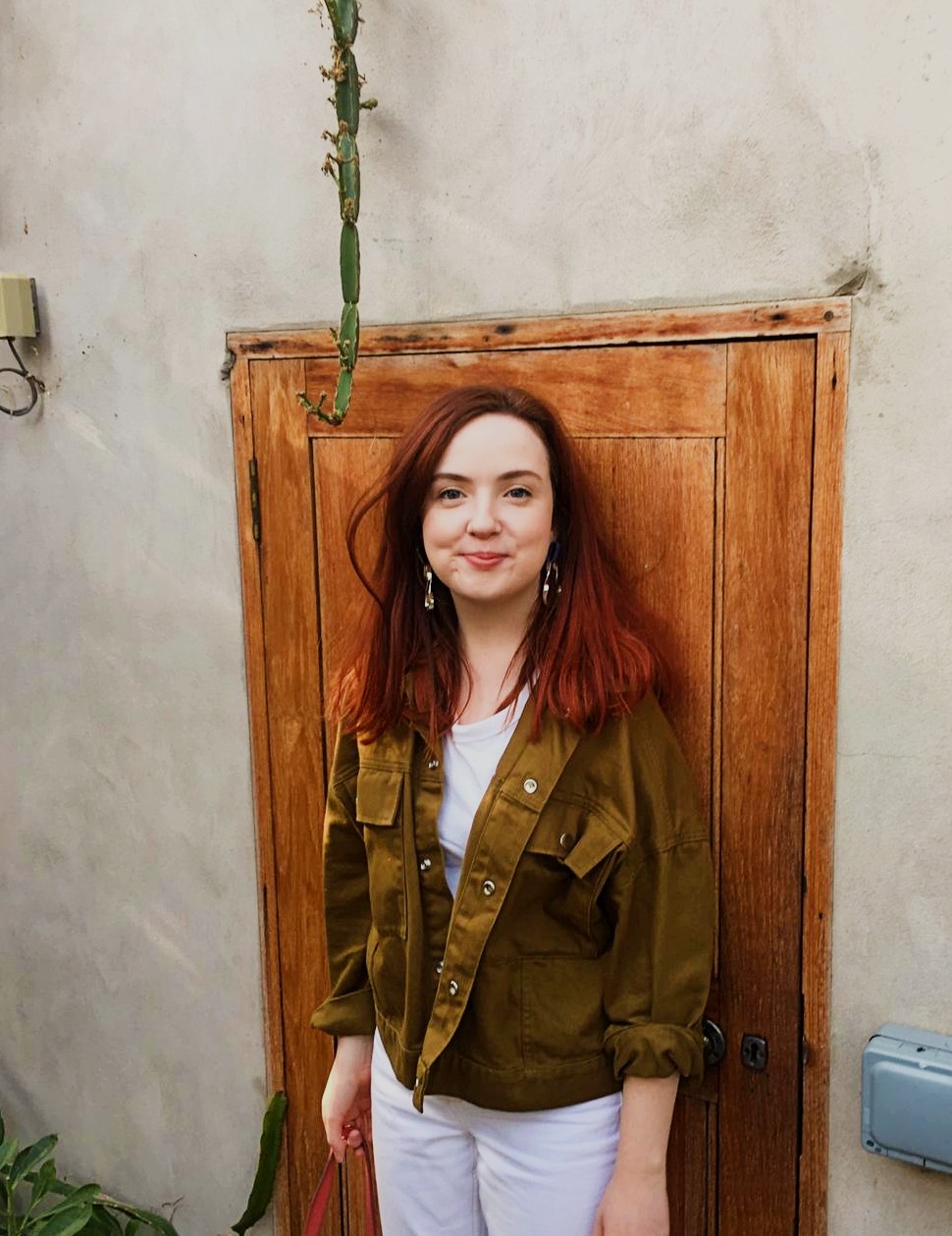How to be a force for good, according to Marie Claire digital cover stars
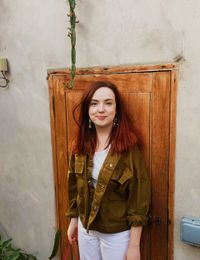
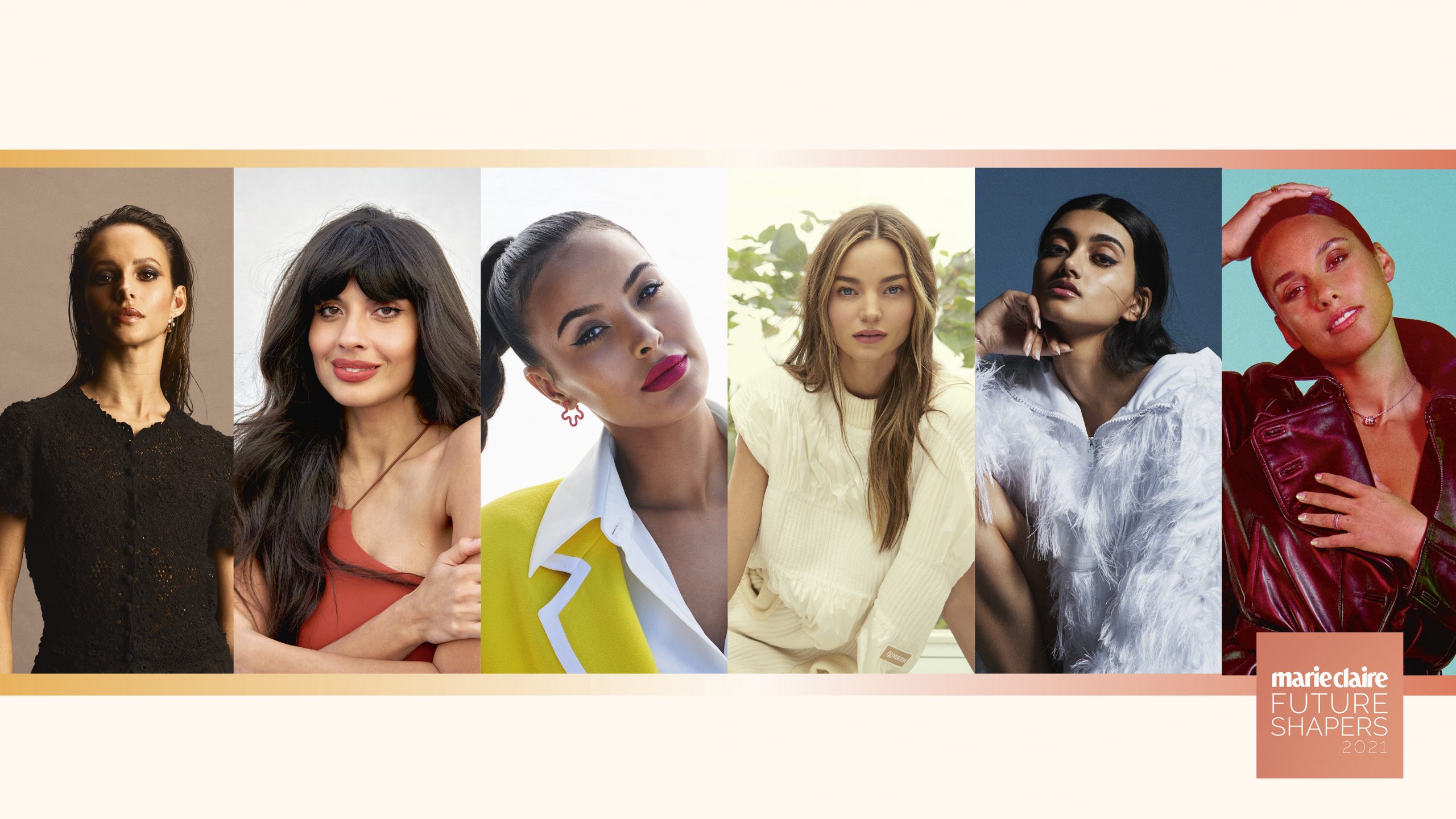
Celebrity news, beauty, fashion advice, and fascinating features, delivered straight to your inbox!
You are now subscribed
Your newsletter sign-up was successful
OK, we'll admit that it sounds like the beginning of a bad joke. But what do Alicia Keys, Miranda Kerr, Maya Jama, Jameela Jamil, Francessca Hayward and Neelam Gill all have in common?
Well, aside from being some of the most recognisable women on the planet (and some of the best follows on Instagram, FYI), these powerhouses have graced the cover of Marie Claire UK in the past couple of years – sharing with us their well-honed wisdom, life lessons, mistakes and learning curves.
Yes, in the latest chapter in our 33-year history of celebrating brilliant women – from principal dancers, to body positivity activists – we've been lucky enough to host some of the most inspiring female movers and shakers in entertainment, the arts and business on our digital covers.
The result? A treasure trove of frank (and often funny) advice, anecdotes, and wisdom about harnessing your platform to enact longterm positive change.
As we at MC HQ ready ourselves to launch the Marie Claire Future Shapers Awards for another year, we looked back on what these six incredible women had to say about being an all-round force for good. (And spoiler: it involves plenty of mistakes along the way.)
Alicia Keys
Our current cover star Alicia Keys has spent two decades sharing her music with the world. And while she's a self-described introvert ("My vibe is pretty much a loner. I love going places by myself. It's just how I move," she tells Marie Claire) she has never held back from using her platform to advocate for good.
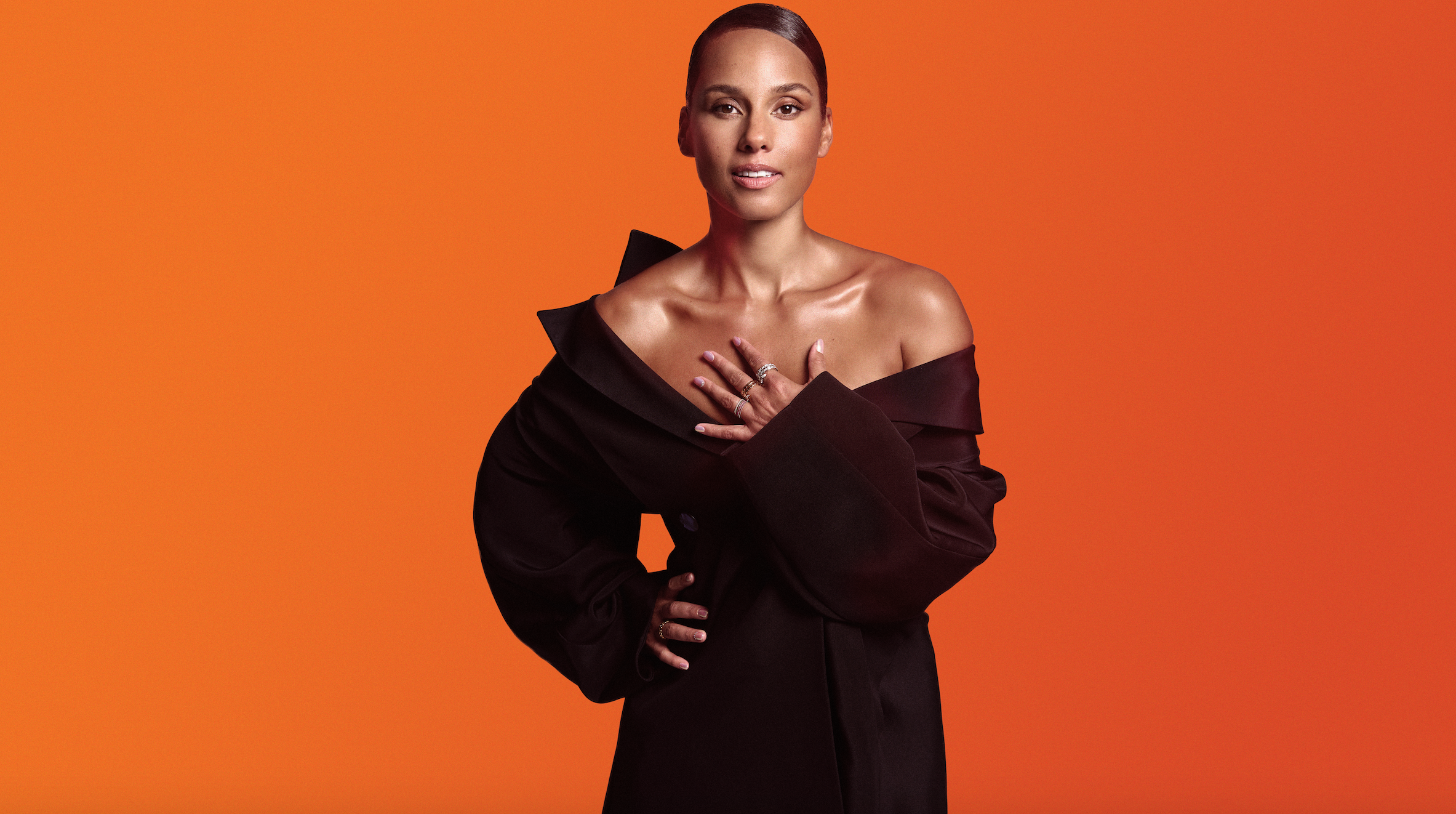
On avoiding self-comparison:
"Don’t compare yourself to anybody else because there is nobody else like you. You’re gonna waste all this time trying to be like someone else who you’ll never be, and they’ll never be you, but you can use that feeling – or even the slight jealousy you might feel about people that conduct themselves a certain way – as a barometer to recognise what is it about you that you want to shift or you want to start doing more of."
Celebrity news, beauty, fashion advice, and fascinating features, delivered straight to your inbox!
On raising Black sons in America:
"I really try to talk to them from a place of empowerment, from a place of recognising the strength and the tenacity from which we come. I really like to share stories of their incredible ancestors. Another beautiful way for them to understand their identity is through the art that we have in our home. I think that’s something that my husband and I are proud of. We love that on every wall is a beautiful black face."
On realising your own strength:
"We have these incredible superpowers and we mostly don’t know that they exist because we’re too afraid or too blind or not encouraged to see them. But under pressure, you stand up and you find a way, because you just have no choice and you’re like, wow I had all that in me all along."
Read Alicia's interview in full here.
Jameela Jamil
How to fit all of Jameela Jamil's accolades into just a couple of sentences? The activist (first) and actor (second) has long been a voice unafraid to go against the status quo. “Participating in real, lasting change is my purpose. I’m just moonlighting as a performer," she tells us.
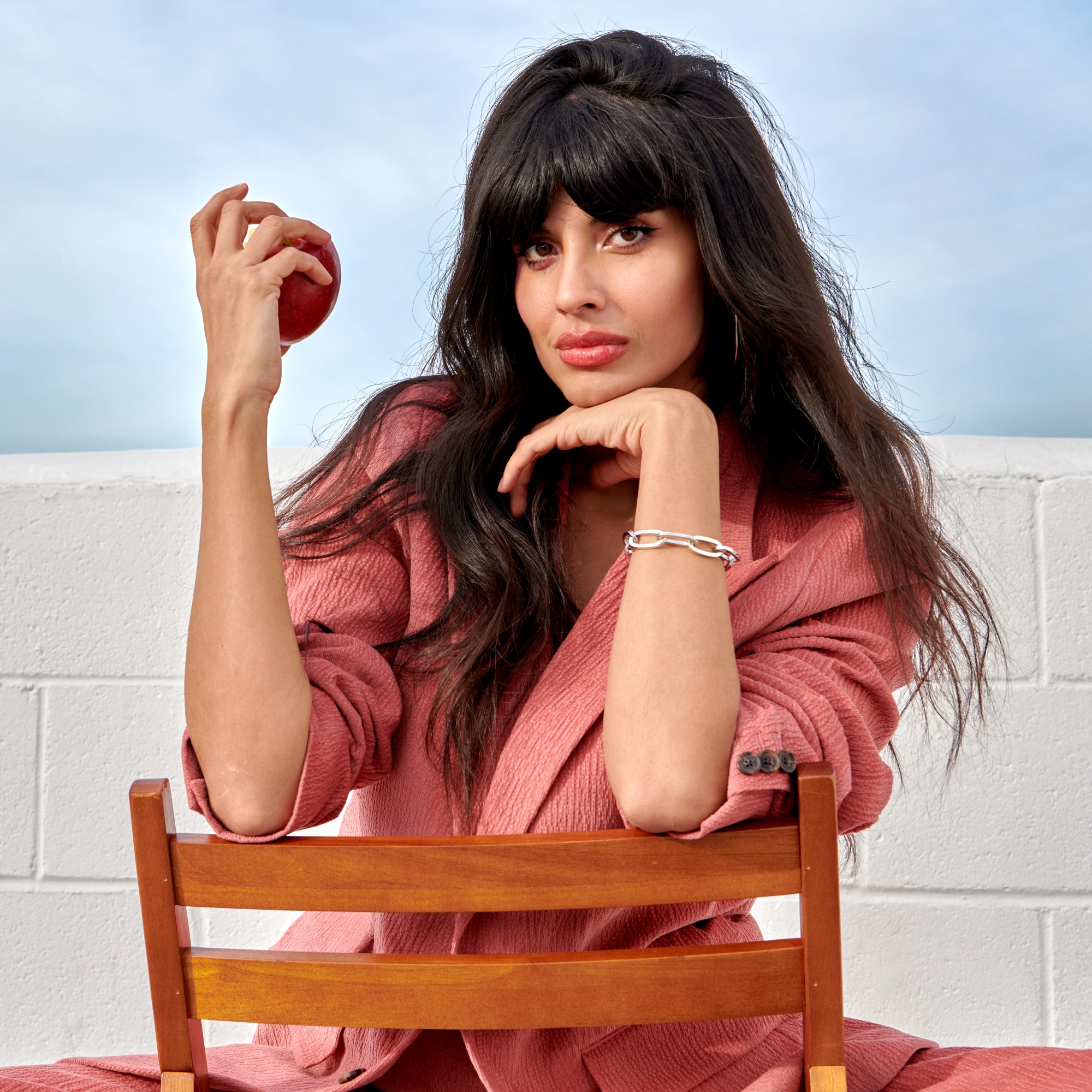
On being unafraid to stand up for what matters:
"I get a lot of messages and private letters from very public women telling me that they are too afraid to speak up about issues because our culture is so punishing towards women. We champion a man who speaks up, but we will absolutely destroy a woman for it. And the only advice I can give – because there’s no way around the scrutiny or misogyny – is to keep going. Have therapy and build your support system before you start to speak out. The more of us who do it, the more hyper-normalised and easier it will become."
On building a community:
"I watched Shonda Rhimes stand on stage when she said women don’t brag enough and that was a really powerful moment. She went on to say she was the highest-paid showrunner in the world. And as a fairly young, black woman stating that about herself, she got a standing ovation. It’s really true – we are told to never, ever congratulate ourselves. So I find [defining my proudest achievements] difficult but, yes, it’s I Weigh – and the fact that we are, hopefully, participating in real, lasting change. This has been my purpose since I was 19. I just moonlight as a performer."
On owning past mistakes:
"I feel like I am the ghost of cancellations past come back to tell everyone there’s life after death! It’s freeing and liberating to officially know that people disapprove of you. It’s exhausting trying to be approved of and liked by everyone – all these different individuals with individual tastes and experiences all expected to like you at the same time and in the same way, for the same reason. I cannot be arsed. Last year set me free and now I can just get on with it."
Read Jameela's interview in full here.
Maya Jama
It may seem like she's star of the moment, but powerhouse presenter, actor and beauty entrepreneur Maya Jama has been plugging away at her craft for years. Raised on a council estate in Bristol with her younger brother Omar, Jama left for London at 16 to forge a career in entertainment, telling us, "It was the only thing I wanted to do, I just wanted to perform and entertain."
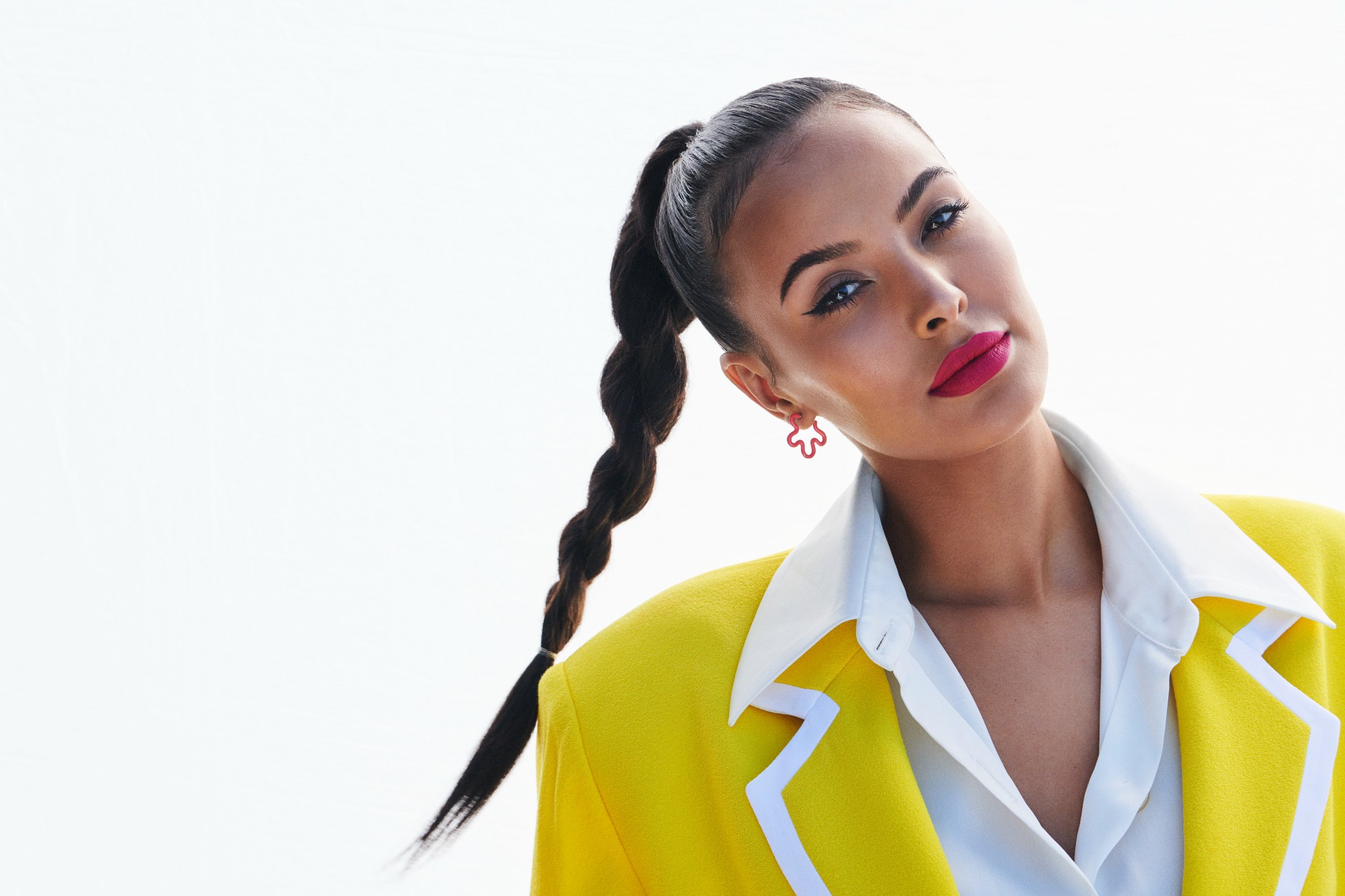
On tackling the industry's sexism head-on:
"If I’ve got a co-host and it’s a man, I’ll just ask [how much he’s being paid]. If it’s someone I’m working with I’ll say, “How much are you getting paid for this?”. I’ve definitely asked good friends like Will Best [her co-host on 4Music]. I haven’t asked anyone else recently, but if I thought it was going to be a complete landslide and we were doing the same job, I’d ask. Why not? In some cases there’s someone with a bigger platform and that makes sense. But when the only difference is your sex and somebody’s getting paid differently? That’s not OK.’
On dealing with trolling:
"It definitely did [bother me] at the beginning. Nobody really prepares you for that. Now there’s a lot more discussion around 'be kind', but when I was 18 there wasn’t any of that. Now I can have a laugh about it because I’m used to it and nobody’s ever said anything horrible to my face, luckily. I can see online comments and think, 'The person saying that wouldn’t say this to my face and they’re probably not happy because nobody happy attacks somebody they don’t know'. That thought process helps you understand it and feel sorry for the person, rather than sad about yourself."
On keeping going:
"Life’s hard, but we can still have a nice time. I believe the energy you put out, you get back. [I’d like to be remembered as] someone who was having a lovely time trying to spread some goodness." Hear, hear.
Read Maya's interview in full here.
Miranda Kerr
October 2021 Marie Claire cover star Miranda Kerr may have made her name traversing the runways of New York, London, Milan and Paris, but her true passion has always been health. Enter: KORA Organics, the award-winning skincare range she launched in 2009, which is now shipped to 120 countries. Here, she imparts her wisdom on business, balance and self-empowerment.
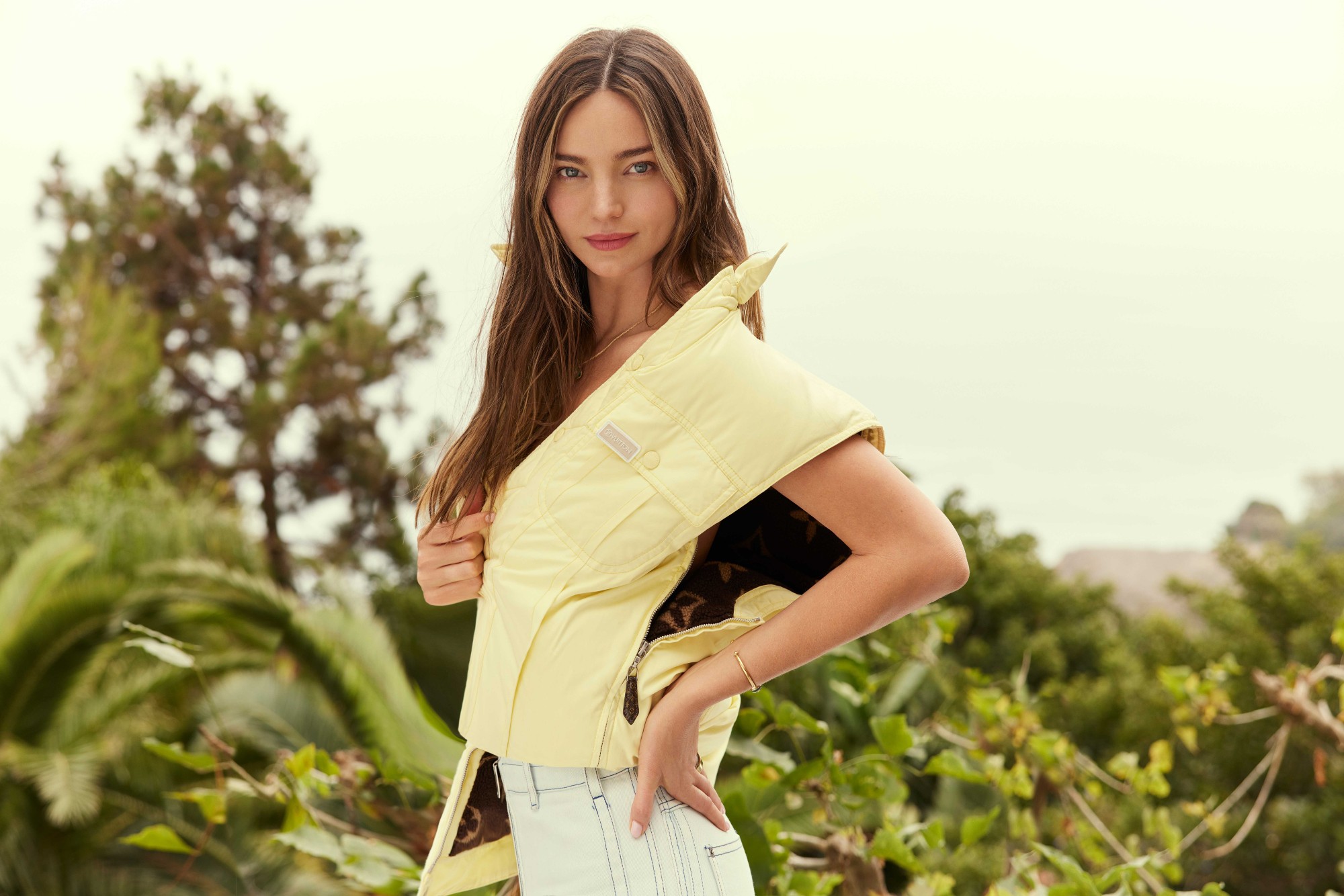
On balance:
"I feel like health is wealth and there’s so much to learn. We do need to take care of ourselves, but I also believe in balance and not depriving yourself." (Yes, even Miranda Kerr enjoys the occasional spot of downtime with a glass of wine.)
On overcoming life's little and large knocks:
"I think that having that challenging time in my life was important for growth," she told us of the "very dark phase" following her high-profile divorce from Orlando Bloom. "You get to learn deeper parts of yourself and become even more insightful once you’ve got through it. But it’s important to ride that wave of emotion and not fight against it… To be gentle and kind to yourself."
On finding the important things in life:
"Now, being 38, having three children, and being where I am in my life, I just feel like [negative press attention] isn’t stuff I’m going to waste my energy on. There’s more to life than worrying about that. I just want to be the best version of myself – the best partner, the best mother, and do the best I can with what I’m passionate about. If people like it and benefit from it, great. But if they don’t, then that’s OK, too. I’m just really enjoying myself."
Read Miranda's interview in full here.
Francesca Hayward
28-year-old Royal Ballet principal dancer Francesca Hayward was about to take her turn in one of the most coveted roles in ballet – the Black Swan in 'Swan Lake' – when the world shut down. "Our creative industries are under threat, the time to act is now," she told us of an unprecedented year that saw many of the industry's brightest talents loose their livelihoods. But there's far more Francesca Hayward wisdom where that came from. Here, she talks diversity, visibility and speaking out on social media.
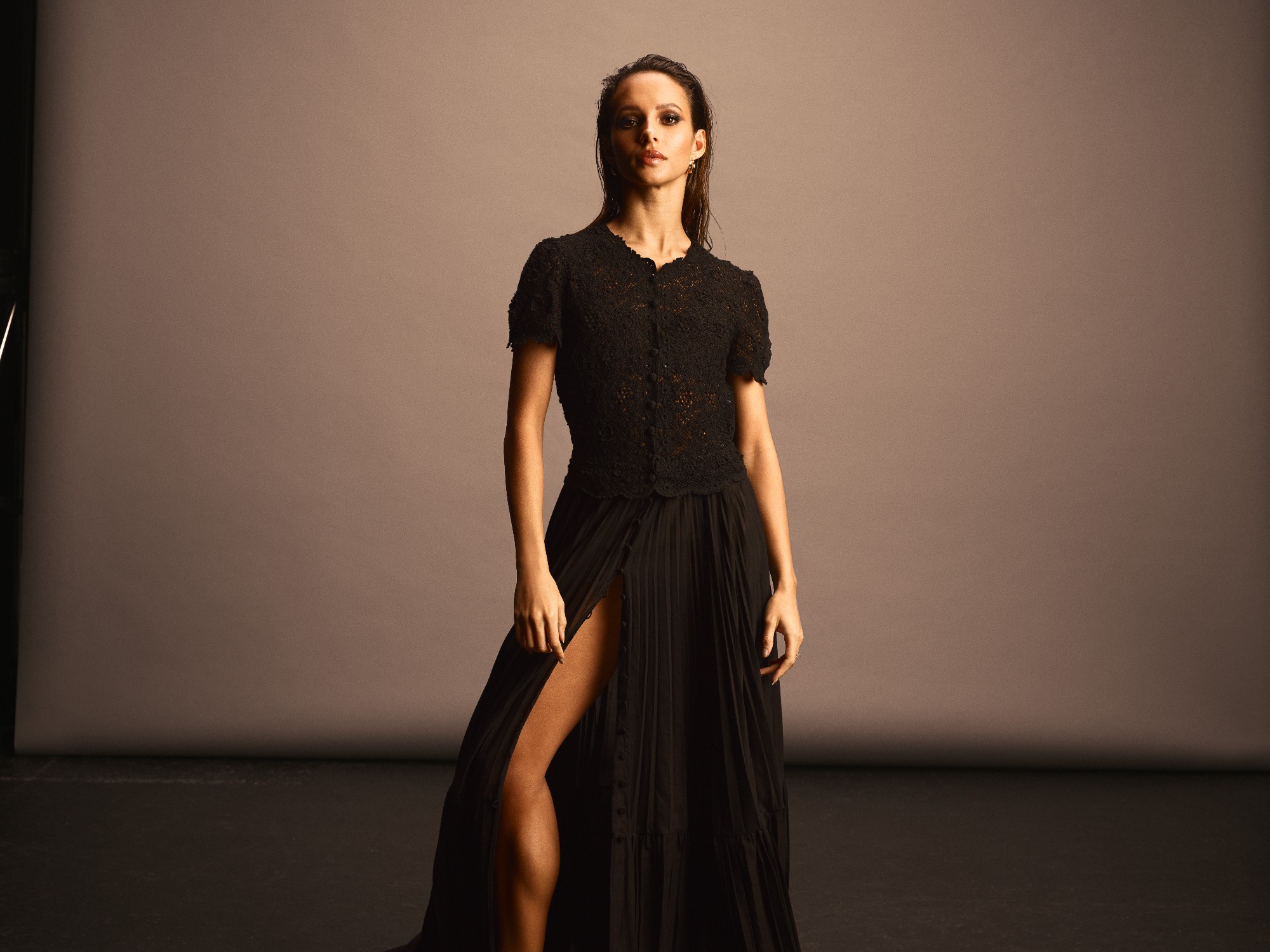
On visibility:
"I feel really passionate about shifting the stereotypes around ballet, making it more accessible to a wider audience and encouraging people from diverse backgrounds to enter the profession. When I was young and watching ballet, it didn’t cross my mind that I was only watching white ballerinas. When I got to the Royal Ballet and people started asking me how it feels to be mixed-race, it kind of took me aback and I didn’t want to have to spend interviews talking about it. But I realise me being here is really important for other people."
On George Floyd and the Black Lives Matter movement:
"‘I still get quite emotional when I even just think about that video, how someone could be that inhumane to another human. On my social media I always steer away from anything political because it can be a very vicious place. But with my background I could not have been silent or carried on posting pictures of myself when this was happening. I can’t say I agree with the whole 'black square' thing. I know for a fact there were people who posted black squares and their values were not aligned with what they were putting out there. They just wanted to be seen as 'non-racist'. But the fact that we’re even having these conversations about racism in society is the most important thing, and that it’s being discussed by everyone of all races."
On improving diversity in the arts:
"I don’t believe that there are lots of talented people from diverse backgrounds that are being rejected because when it comes to ballet, talent is the most important thing and if you’re talented you can make it. What I really believe is that they’re not being introduced to these art forms in the first place, or they are feeling like they’re not welcome there. This year, the whole industry and the dance world has had to address this. There’s no quick fix. I don’t think we’re going to see the issue resolved in the next few years. We have to start with the next generation, going into schools and inspiring people from all backgrounds. That is going to take time but that is what I feel committed to doing now."
Read Francesca's interview in full here.
Lily Cole
Lily Cole has never been one for being put in a box. A model (in fact, the youngest model to ever land a Vogue cover at just 16), actor, writer, businesswoman and sustainability campaigner, Cole is, above all, an activist, and has dedicated much of her career to global issues ranging from gender equality to the evils of fast fashion.
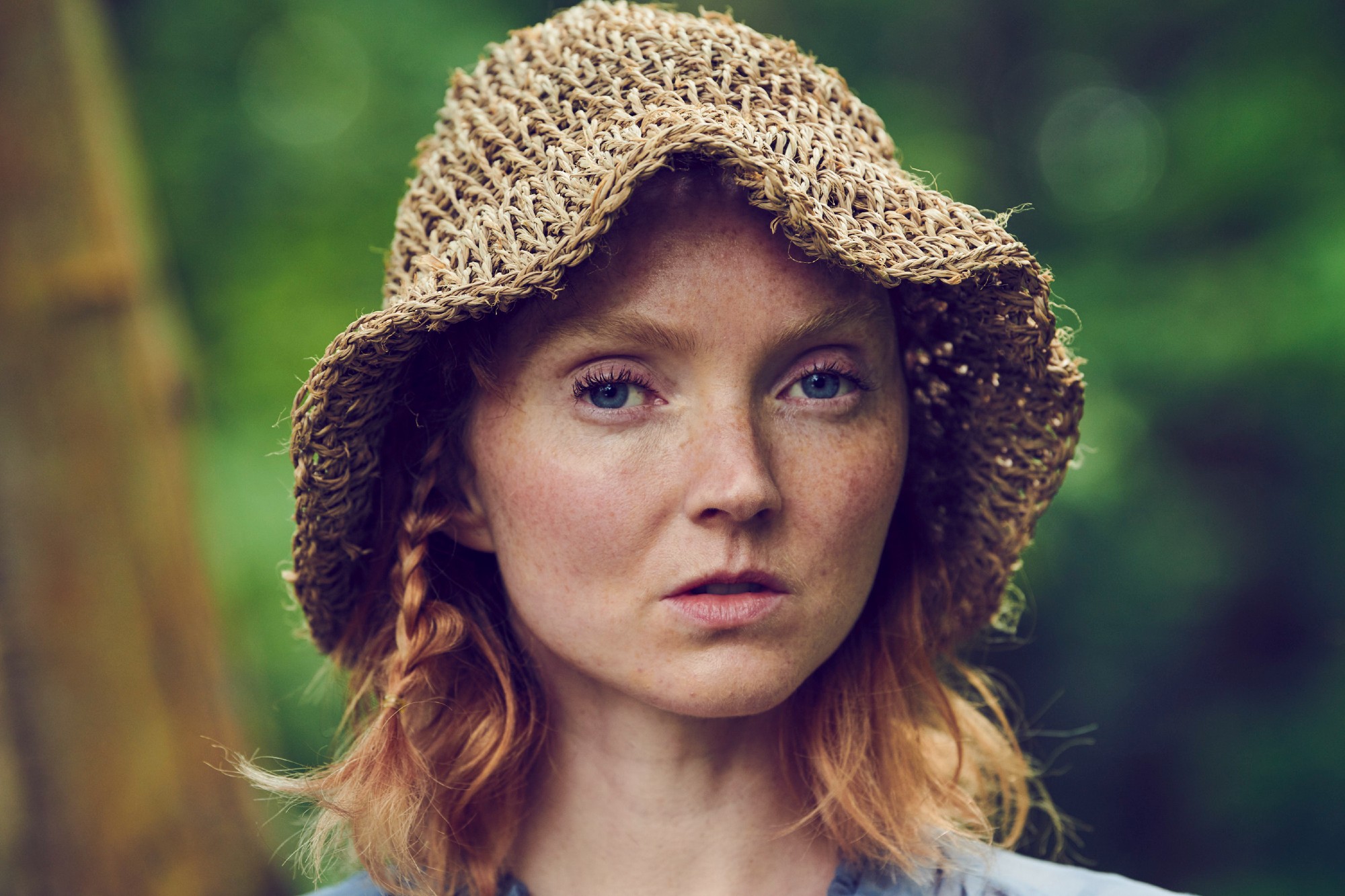
On speaking up, despite the repercussions:
"It’s become much more fashionable to be an activist, which is no bad thing. But at the beginning I remember my agent being worried about me: 'Aren’t you scared you’re biting the hand that feeds you by critiquing the fashion industry?' And it did have some negative effects in terms of how I was viewed by certain people in the industry. But, that said, I don’t think I really cared. What I was talking about was really important, so it was worth saying. The positive thing that has changed in the past 15 years is that the conversation around sustainability in fashion is no longer the niche, anti-fashion, hempy space it was perceived to be. It’s become much more mainstream and accessible."
On harnessing your platform to create lasting change:
"When I started getting a public profile through fashion I felt more responsibility to use that platform and voice to bring attention to different causes. That said, I think everyone’s voice is important – for somebody who doesn’t have a public platform, their voice is just as important. Everyone should feel empowered to realise that. In terms of protest being a privilege, that’s just the reality. There are countries where you could be killed for being gay. So the ability for people in our communities, where it is legal to provide a voice for others? That’s important. And those privileges, it’s recognised historically, have often been wrongly earned."
On raising children in a time of climate crisis:
"I want to fix these problems ourselves so we’re not creating this dystopian landscape for our children to navigate. That said, I’m 32 and already starting to see younger generations coming up with their own ideas. That feels really positive and I think it will be interesting to see how value systems shift with younger generations who have a fresh way of seeing the world. I also think we need to listen to our elders because there’s a lot we can learn from generations who’ve lived through different experiences."
Read Lily's interview in full here.
Neelam Gill
"People told me to just shut up and model," says Neelam Gill, the model and activist you'll recognise from oh, I don't know, billboards, glossy magazine editorials, countless runway snapshots, and, of course, the digital cover of Marie Claire UK. The first British Indian model to appear in a major Burberry campaign (back in 2014), Gill has since become a staunch advocate for changing the face of fashion.
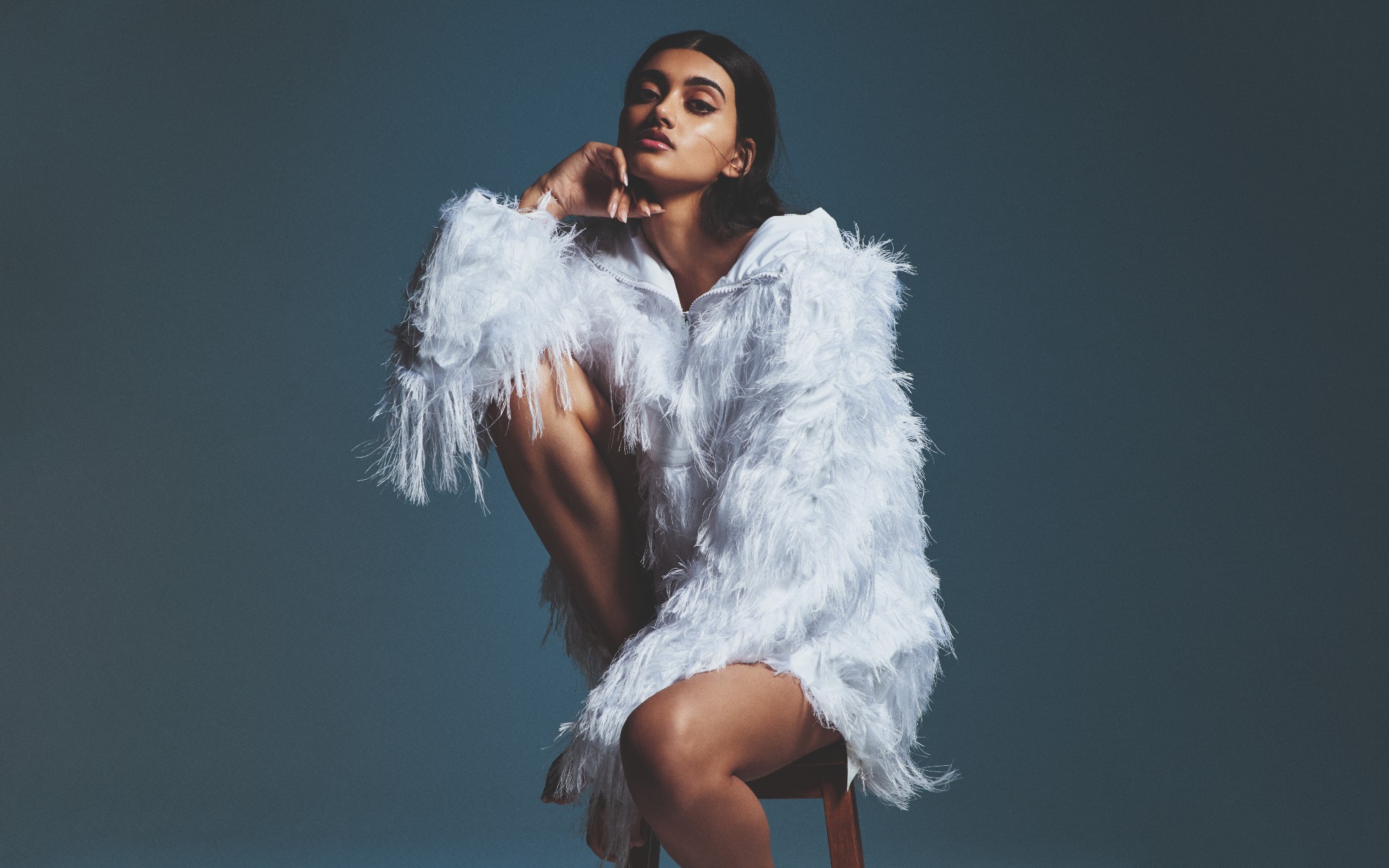
On using her platform for good:
"When I came into this industry, without realising it I was given a voice because people wanted to hear my opinion on being the first Indian model. I remember reading comments like, 'She should just shut up and model'. But if I help one person, I don’t care if 30 people are writing shit to me in my DMs."
On mental health and overcoming adversity:
"[Depression is] something I struggled with before I was modelling and it’s always been in my family. My mum suffered from clinical depression – at one point in my childhood she was bedridden for about three years. I’ve always been really aware of it, but now I’m learning how to cope with it better. I still have my [bad] days, but I know what the steps are to get through it."
On the power of role models:
"[My role models are] smart businesswomen, like Rosie Huntington-Whiteley, who have built a brand for themselves; people who have used what they have and leveraged it. Some women want to remain a model and stay super-high fashion and that’s great – but that’s never been me."
Read Neelam's interview in full here.
Kate McCusker is a freelance writer at Marie Claire UK, having joined the team in 2019. She studied fashion journalism at Central Saint Martins, and her byline has also appeared in Dezeen, British Vogue, The Times and woman&home. In no particular order, her big loves are: design, good fiction, bad reality shows and the risible interiors of celebrity houses.
